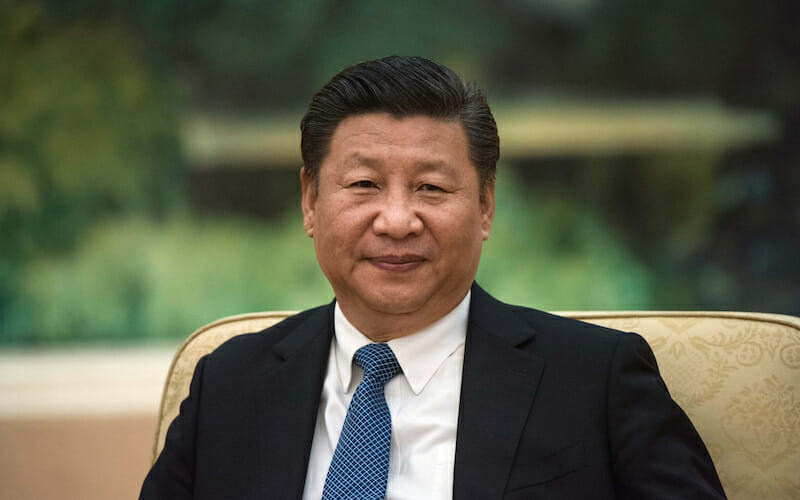
Missing Dimensions in China’s Global Race
From Deng Xiapoing’s early 1990s strategy of “Tao Guang Yang Hui,” China, especially under Xi Jinping has stepped on a diplomatic philosophy of “Fen Fa You Wi.” Today, China envisions the manifestation of its power globally and through contemplation of the experiences of the previous powers, it has learned the importance of having multidimensional capabilities. It has built its power across several wide sectors like the military, science and technology, economy, cyberspace, education, diplomacy, governance, culture and other venues.
Though, China’s multidimensional character reflects its ultimate goal of becoming a global power yet China’s actual influence and character as a global player is of a questionable status. David Shambaugh distinguishes between being a global actor and global power and China, he maintains is a global actor as it is not yet fully influential on the events of other nations. It has a wide presence but a shallow global impact.
China shares its borders with fourteen other countries and has a coastline of about 18,000 kilometers and therefore China has a huge military expenditure. Through its defense white papers, it has continuously mentioned about an insecure security environment. Though China’s military power and cyber warfare technologies are at par with the US, its ambition is limited to controlling the Asian neighborhood.
Since the end of the Cold War, US has effectively carried out the responsibility of being a global security envoy through formal pacts and treaties like NATO. China, at the moment aims to dominate in the East Asian region through controlling South and East China seas and overpowering the role of US in the region. Moreover, China does not like third party interferences and follows a non-interference policy laid down by Zhou Enlai. We are in an era of new diplomacy and it is about time for China to realize that a non-interference policy runs contrary to the desire of achieving a global power status. China needs to positively put across its voice in issues of immediate global attention.
The image of a nation is also defined on the basis of the type of governance it follows. Governance has direct implications on the development of a nation and its global image. Xi has been concerned with reasserting the party’s role and ever since 2012, there is an elevated assertion on a dominant role of central leadership. Steve Tasang states that Xi is reemphasizing ‘consultative Leninism’ as the principle rule. An unpublished official document banned the public discussion of “seven unmentionables,” specifically, press freedom, civil society, citizens’ rights, universal values, party’s factual mistakes, independence of judiciary and discussion of a powerful capitalist class. This reflects that the international outlook of China is dependent only on the official data, documents and state-run media. The Chinese public opinion about the international system is curtailed and therefore missing.
In fact, the “China Dream” is a dream of not the Chinese people but of the elites. This idea somewhat forgets to articulate the dreams of the ordinary Chinese. Rather, China needs to revitalize reforms, which empower the ordinary Chinese to have dreams and lay out institutional mechanisms, which turn those dreams into reality.
China is undergoing several domestic challenges. In fact, the work report of the 18th CPC Party Congress mostly talked about dealing with domestic problems and only a tenth of the document discussed foreign policy matters. Even the 19th CPC Party Congress did not lay out any solid plans of foreign policy strategy either. China, for now wants to deal with the present challenges rather than putting its focus on policies which would make it a world hegemon and this is because it is full of non-traditional security challenges like ethnic separatism, counter terrorism, environmental security, public health, transnational crimes and likewise.
Due to domestic challenges, Chinese policy makers are skeptical about China’s continued rise. China is presently acting on uplifting the poverty struck population of the Xinjiang belt to alleviate armed conflicts. In order to become a global power, China needs to emerge out of such petty domestic problems.
Ian Bremmer’s ‘J curve’ examines that more open a society is politically, the more stable it is on the path of developmental achievements. The more tolerant the society, the higher are the chances of successful economic structural reforms towards becoming a mature economy. Ever since Xi came into power, China seems to be going on a harder path of authoritarianism. Not to forget, hard-authoritarianism results in limited reform, stagnation and eventual decline. China needs to reconsider that its aspiration of a developed economy with stability will essentially require substantial liberalization in the domestic public sphere.
China also lacks the ability to shape world events. In fact, it itself avoids getting into matters of other nations which require third party interventions. This portrays China’s disqualification in becoming a successful super power. Though China powerfully influences the economic realms of several countries, the states do not look up to China in matters of diplomatic resolutions. The world does fear an ideologically different China as a new world power but perhaps the same ideology keeps the world away from looking up to China as a responsible power. China is only one of the emerging powers of the world and its power is partial. To flourish as a successful global power, China will have to first learn global responsibilities. It also needs to address the voice of its people, the role of an open media and an overall need for change in functional mechanisms of its government. Not to forget, the harder the authoritarianism, the closer is the decline.

